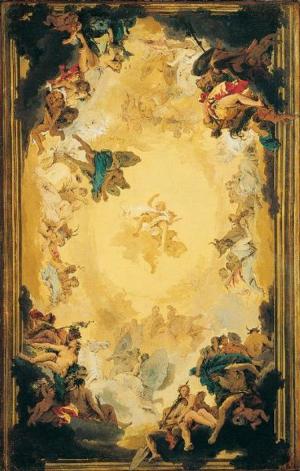| Author: | John Willis Clark | ISBN: | 9781465503077 |
| Publisher: | Library of Alexandria | Publication: | March 8, 2015 |
| Imprint: | Language: | English |
| Author: | John Willis Clark |
| ISBN: | 9781465503077 |
| Publisher: | Library of Alexandria |
| Publication: | March 8, 2015 |
| Imprint: | |
| Language: | English |
When engaged in editing and completing The Architectural History of the University and Colleges of Cambridge, I devoted much time and attention to the essay called The Library. The subject was entirely new; and the more I looked into it, the more convinced did I become that it would well repay fuller investigation than was then possible. For instance, I felt certain that the Customs affecting monastic libraries would, if one could only discover them, throw considerable light on collegiate statutes relating to the same subject. The Architectural History having been published, I had leisure to study libraries from my new point of view; and, while thus engaged, I fortunately met with the admirable paper by Dom Gasquet which he modestly calls Some Notes on Medieval Monastic Libraries. This brief essay—it occupies only 20 pages—opened my eyes to the possibilities that lay before me, and I gladly place on record here the debt I owe to the historian to whom I have dedicated this book. When I had the honour of delivering the Rede Lecture before the University of Cambridge in June 1894, I attempted a reconstruction of the monastic library, shewing its relationship, through its fittings, to the collegiate libraries of Oxford and Cambridge; and I was also able, following the example set by Dom Gasquet in the above-mentioned essay, to indicate the value of illuminated manuscripts as illustrating the life of a medieval student or scribe. In my lectures as Sandars Reader in Bibliography, delivered before the University of Cambridge in 1900, I developed the subject still Further, extending the scope of my enquiries so as to include the libraries of Greece and Rome. In writing my present book I have availed myself freely of the three works above mentioned. At the same time I have incorporated much fresh material; and I am glad to take this opportunity of stating, that, with the single exception of the Escõrial, I have personally examined and measured every building which I have had occasion to describe; and many of the illustrations are from my own sketches
When engaged in editing and completing The Architectural History of the University and Colleges of Cambridge, I devoted much time and attention to the essay called The Library. The subject was entirely new; and the more I looked into it, the more convinced did I become that it would well repay fuller investigation than was then possible. For instance, I felt certain that the Customs affecting monastic libraries would, if one could only discover them, throw considerable light on collegiate statutes relating to the same subject. The Architectural History having been published, I had leisure to study libraries from my new point of view; and, while thus engaged, I fortunately met with the admirable paper by Dom Gasquet which he modestly calls Some Notes on Medieval Monastic Libraries. This brief essay—it occupies only 20 pages—opened my eyes to the possibilities that lay before me, and I gladly place on record here the debt I owe to the historian to whom I have dedicated this book. When I had the honour of delivering the Rede Lecture before the University of Cambridge in June 1894, I attempted a reconstruction of the monastic library, shewing its relationship, through its fittings, to the collegiate libraries of Oxford and Cambridge; and I was also able, following the example set by Dom Gasquet in the above-mentioned essay, to indicate the value of illuminated manuscripts as illustrating the life of a medieval student or scribe. In my lectures as Sandars Reader in Bibliography, delivered before the University of Cambridge in 1900, I developed the subject still Further, extending the scope of my enquiries so as to include the libraries of Greece and Rome. In writing my present book I have availed myself freely of the three works above mentioned. At the same time I have incorporated much fresh material; and I am glad to take this opportunity of stating, that, with the single exception of the Escõrial, I have personally examined and measured every building which I have had occasion to describe; and many of the illustrations are from my own sketches















